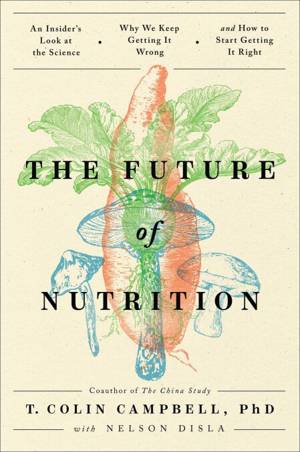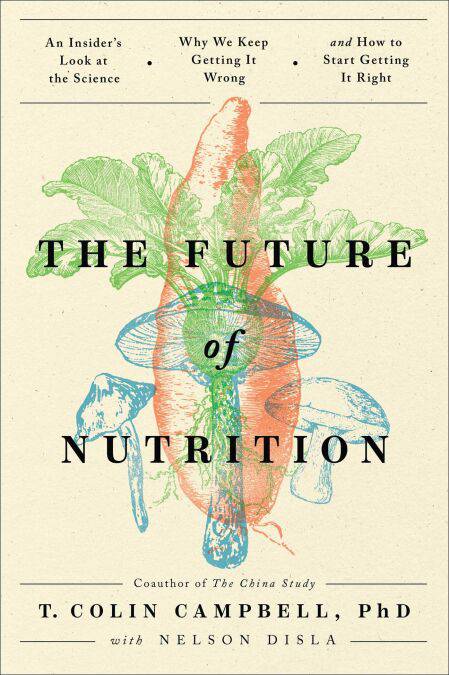
- Afhalen na 1 uur in een winkel met voorraad
- Gratis thuislevering in België vanaf € 30
- Ruim aanbod met 7 miljoen producten
- Afhalen na 1 uur in een winkel met voorraad
- Gratis thuislevering in België vanaf € 30
- Ruim aanbod met 7 miljoen producten
Zoeken
The Future of Nutrition E-BOOK
An Insider's Look at the Science, Why We Keep Getting It Wrong, and How to Start Getting It Right
T. Colin Campbell, Nelson Disla
E-book | Engels
€ 11,17
+ 11 punten
Omschrijving
From the coauthor of The China Study and author of the New York Times bestselling follow-up, Whole
Despite extensive research and overwhelming public information on nutrition and health science, we are more confused than ever—about the foods we eat, what good nutrition looks like, and what it can do for our health.
In The Future of Nutrition, T. Colin Campbell cuts through the noise with an in-depth analysis of our historical relationship to the food we eat, the source of our present information overload, and what our current path means for the future—both for individual health and society as a whole.
In these pages, Campbell takes on the institution of nutrition itself, unpacking:
Why the institutional emphasis on individual nutrients (instead of whole foods) as a means to explain nutrition has had catastrophic consequences
How our reverence for "high quality" animal protein has distorted our understanding of cholesterol, saturated fat, unsaturated fat, environmental carcinogens, and more
Why mainstream food and nutrient recommendations and public policy favor corporate interests over that of personal and planetary health
How we can ensure that public nutrition literacy can prevent and treat personal illness more effectively and economically
The Future of Nutrition offers a fascinating deep-dive behind the curtain of the field of nutrition—with implications both for our health and for the practice of science itself.
Despite extensive research and overwhelming public information on nutrition and health science, we are more confused than ever—about the foods we eat, what good nutrition looks like, and what it can do for our health.
In The Future of Nutrition, T. Colin Campbell cuts through the noise with an in-depth analysis of our historical relationship to the food we eat, the source of our present information overload, and what our current path means for the future—both for individual health and society as a whole.
In these pages, Campbell takes on the institution of nutrition itself, unpacking:
Why the institutional emphasis on individual nutrients (instead of whole foods) as a means to explain nutrition has had catastrophic consequences
How our reverence for "high quality" animal protein has distorted our understanding of cholesterol, saturated fat, unsaturated fat, environmental carcinogens, and more
Why mainstream food and nutrient recommendations and public policy favor corporate interests over that of personal and planetary health
How we can ensure that public nutrition literacy can prevent and treat personal illness more effectively and economically
The Future of Nutrition offers a fascinating deep-dive behind the curtain of the field of nutrition—with implications both for our health and for the practice of science itself.
Specificaties
Betrokkenen
- Auteur(s):
- Uitgeverij:
Inhoud
- Aantal bladzijden:
- 336
- Taal:
- Engels
Eigenschappen
- Productcode (EAN):
- 9781950665730
- Verschijningsdatum:
- 14/12/2020
- Uitvoering:
- E-book
- Beveiligd met:
- Adobe DRM
- Formaat:
- ePub

Alleen bij Standaard Boekhandel
+ 11 punten op je klantenkaart van Standaard Boekhandel
Beoordelingen
We publiceren alleen reviews die voldoen aan de voorwaarden voor reviews. Bekijk onze voorwaarden voor reviews.











